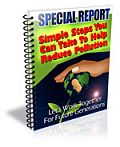Welcome to Composting Guide
Composting Article

Learning the Method of Composting
from:Composting can be described in a scientific manner or a more every day way. The scientific definition of composting is the aerobic decomposition of organic and biodegradable matter to make compost. The simpler definition of composting is the decaying of different food manner, such as vegetables or animal manure. Composting is broken into two types: home composting or industrial composting. Although basically the same processes are used for both home and industrial composting, different techniques are used and different characteristics are taken into consideration.
We've all heard of compost when discussing working on our gardens or helping the environment, but seldom fully understand the entire process of composting. Composting is a form of recycling as it recycles our yard (manures, leaves, grass, etc.) and organic household waste into a type of humus-like soil. In addition to yard waste, fruits and vegetables are also used for compost. Composting not only gives us the best fertilizer for our lawns and gardens but also helps to reduce or eliminate the "green" waste that will otherwise end up in our landfills.
Composting speeds up the normal decomposition process because of the increases temperatures that exist with it. The exothermic process causes an elevated heat, which in turn lessens the time it takes the microorganisms to generate. This increases the speed it takes for the nutrients and energy to exchange. If the conditions and environment are right, composting will take place on its own, without any man made help. However, it is necessary to make the circumstances and conditions optimal so the organic waste can break down properly.
Although composting is something that many Americans are doing on their own today for purposes of productive gardening and helping the environment, different forms of composting may take place on their own. This type of composting also referred to as decomposition, takes place through nature even though the conditions that most composters require are not there. This type of composting is slow, however. For instance, items of nature like leaves, wood or bark will break down into humus but it may take from 3 to 7 years.
Many people today are doing their own composting as a means of keeping the environment "green" as well as producing their own fertilization and compost for their flower beds and gardens. Rather than throwing out food waste, they keep it in a covered container throughout the winter months, watching it decompose. In the springtime, it is dumped in the garden and tilled in with the current dirt. This type of fertilization is not only more economical but also excellent for garden crops. More and more individuals are choosing to do their own composting every year.



